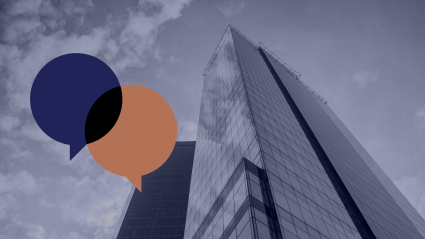
In conversations with the CEOs of some of the world’s biggest multinationals, a topic keeps coming up that would have been unthinkable even a few years ago. What once might have prompted more than a few eye-rolls in the boardroom is now considered a key part of managing partnerships, creating value, delivering for clients, and—ultimately—establishing an enduring competitive advantage. I am talking about empathy.
I believe empathy has been overlooked in business for so long because it has been misunderstood. Here is how I think about it: Intelligence and experience can help us solve problems. Optimism can help us generate momentum. But empathy is what channels our creative energies in the right direction. It’s the homing device that ensures we are focused on where our clients have come from and where they are now as we advise them on a path forward.
Empathy is the competitive advantage that will separate the winners from the losers.
In many ways, the pandemic has unleashed the power of empathy. Our clients across the bank have confronted incredible challenges over the past 18 months—from reconfiguring supply chains, to managing worker shortages, to safeguarding their own people’s health. And the pressures they have faced, both professionally and personally, mean that our ability to serve them with empathy and adapt to meet their needs has become paramount. For instance, how do we convince a client to embrace a major new idea that might involve their taking on some risk? How do we help a client navigate the tricky transition to the low-carbon economy? Addressing these challenges takes strong emotional intelligence. It requires collaboration and absorbing the perspectives of others. It demands being in tune with the times. These are often referred to as “soft” skills. They are anything but. After all, you may get only one shot to make your pitch, to sell your idea, so it is critical that you understand where your clients are coming from and incorporate their circumstances into your plans, rather than expecting them to conform.
Empathy has also become central to how we have supported our employees through COVID-19’s darkest days. By giving our people the flexibility and support they need to navigate the challenges brought on by the pandemic, we’ve helped them demonstrate resiliency and, in many cases, increase their productivity. This heightened attention to well-being also guides us as we plan for the future of work and is why we are convinced that a hybrid approach is both beneficial to our people and compatible with running a successful, competitive bank. It has also become a major selling point for us in the battle for talent.
But empathy is not just about listening or being nice. It is about understanding and insight. It is about forming connections and nurturing relationships. It is appreciating the relevant trends in both business and society. And what we have found at Citi is that empathy is foundational to how we deliver for our clients and how we attract and retain talent. Empathy enables the excellence we strive for every day. It helps create our edge.
With every generation, we get to redefine what leadership looks like—and I believe the disruptive forces of the pandemic have ushered in that opportunity again. The top of the house will always be laser-focused on growth and increasing profits. But behind those numbers are people deliberating whether to buy your product, whether to sign up for your service, whether to invest in your strategic vision, whether to join your team. If you want their business, then you need to put yourself in their shoes and ask: What are they thinking about? What might be holding them back? What do they want to achieve?
The events of recent months have proved that today’s leaders must be more dynamic than ever. They need to be strong in the quantitative, technical, and business skills that are a critical part of leading an organization. But these must also be complemented with a unique set of skills grounded in empathy. In this new age of disruption, where scale, agility, and a relentless focus on the needs of clients and customers are imperative for every business, empathy is the competitive advantage that will separate the winners from the losers.






